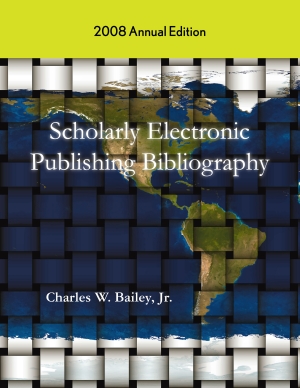The University of Calgary has become a beta development partner for Serials Solutions' Summon unified discovery service.
Here's an excerpt from the press release:
Serials Solutions, a business unit of ProQuest, has added University of Calgary as a beta development partner for the Summon™ unified discovery service. A variety of new content providers, including BMJ, an international peer-reviewed medical journal and subsidiary of the British Medical Association have also signed onto the Summon™ service. BMJ joins nearly 100 content providers along with key partners ProQuest and Gale–aggregators representing more than 4,700 publishers.
The Summon™ service is a pioneer in creating Google-like searching of the full breadth of content found in library collections. In the case of University of Calgary, library archives and museum collections will be integrated too, enabling users to find books and videos, e-resources at the article level, as well as manuscripts and artifacts, all from a simple, obvious starting point.
"We are a unique cultural institution supporting research, a museum, a university press, along with archives and special collections," said Tom Hickerson, Vice Provost and University Librarian, Libraries and Cultural Resources, at University of Calgary. "We've been actively searching for ways to provide integrated access to the diversity of our resources, enhancing discovery of an entirely new spectrum of information. I'm optimistic that the Summon service is the mechanism that can do that."
The goal of the Summon™ service is to not only bring the user back to the library as the starting place for research, but to also provide a channel for greater return on the library's content investment. The role of the beta partners is to ensure the service is tracking against those goals, providing feedback from the field. University of Calgary librarians, archivists and curators will initially test and use the Summon™ service. Then, they will move it to an open beta in May, getting feedback from faculty and student users. Other partners who are already testing include Dartmouth College, Oklahoma State University, University of Sydney, University of Liverpool and Western Michigan University


